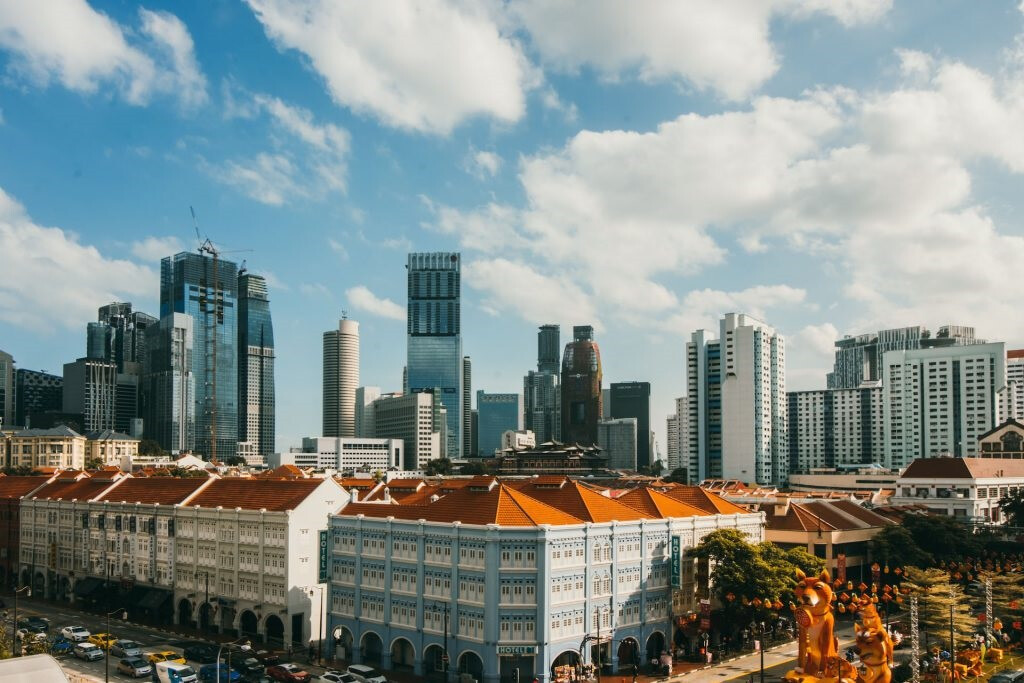
Singapore's real estate market, a beacon of stability and growth over the past decade, faces a crucial juncture as global economic uncertainties intensify. Despite weathering previous storms, including the recent pandemic, the sector now confronts the potential ramifications of escalating international trade tensions, particularly following U.S. President Donald Trump's recently announced tariff impositions. The so-called "Liberation Day" tariffs have already sent ripples through global equity markets, igniting fears of a protracted trade war and a broader global economic slowdown.
While Singapore's direct exposure to the proposed 10% tariffs remains relatively modest, its highly open economy and limited domestic market render it susceptible to shifts in the trade policies of its major partners. With many key trading nations facing significantly higher direct tariff burdens, the immediate outlook for Singapore's market is clouded by anticipated volatility and uncertainty.
However, Singapore possesses inherent strengths that may buffer the impact. The government's robust fiscal reserves provide a crucial cushion, enabling potential support measures for households and businesses should economic conditions deteriorate. Furthermore, the Monetary Authority of Singapore (MAS) stands prepared to deploy accommodative monetary policies if the need arises, offering a degree of flexibility in navigating economic headwinds.
Adding a layer of potential support is the anticipated downward trend in global interest rates. Lower borrowing costs typically provide a favorable environment for real estate investment, potentially mitigating some of the negative sentiment stemming from trade concerns. This suggests that investors with a long-term horizon may view the current climate as an opportunity rather than a deterrent.
Singapore Remains a Key Destination for Regional Capital
Despite the looming global economic anxieties, Singapore's allure as a prime investment hub in the Asia Pacific region persists. The 2025 Asia Pacific Investor Intentions Survey by CBRE indicates that a significant proportion of investors active in Singapore's property market intend to maintain or even increase their acquisition activity in the coming year, fueled by expectations of further interest rate reductions.
The survey positions Singapore as the third most preferred destination for cross-border real estate investment within the Asia Pacific, trailing only the established powerhouses of Tokyo and Sydney. This slight dip from its 2024 ranking underscores the heightened competition for investment capital in the region but still highlights Singapore's fundamental appeal.
Singapore's enduring attractiveness stems from its stable macroeconomic fundamentals, a consistently business-friendly regulatory environment, and its perceived political neutrality, which offers investors a safe harbor for portfolio diversification and capital preservation. In the current climate of elevated interest rates and global uncertainty, investors are increasingly focusing on core-plus and value-add strategies within Singapore's real estate market, seeking stable returns with the potential for enhanced yields.
Economic Headwinds and Policy Responses
Recent analyses suggest that the U.S. tariff policies pose a significant threat to Singapore's economic growth trajectory, potentially leading to downward revisions of the 2025 growth forecast. Sectors with high external trade dependence, such as manufacturing, wholesale trade, and transportation, are particularly vulnerable to the cascading effects of global trade disruptions.
In response, the Singaporean government has proactively established a task force to formulate and implement countermeasures. These measures are expected to encompass budgetary support to cushion the impact on businesses and households, as well as potential adjustments to monetary policy by the MAS.
Singapore's historical track record of resilience in navigating global economic crises provides a degree of reassurance. Its stable political landscape, coupled with a robust and well-regulated financial system, continues to position the nation as a secure and reliable investment destination.
Looking ahead, while short-term market volatility is a distinct possibility, Singapore's long-term growth prospects in the real estate sector remain robust. Its strategic location, strong connectivity, and reputation as a global business hub underpin its enduring appeal. Investors, however, would be well-advised to adopt a long-term perspective, carefully assessing market dynamics and tailoring their investment strategies to navigate potential short-term fluctuations while capitalizing on the underlying strengths of the Singaporean real estate market.
[Copyright (c) Global Economic Times. All Rights Reserved.]



























